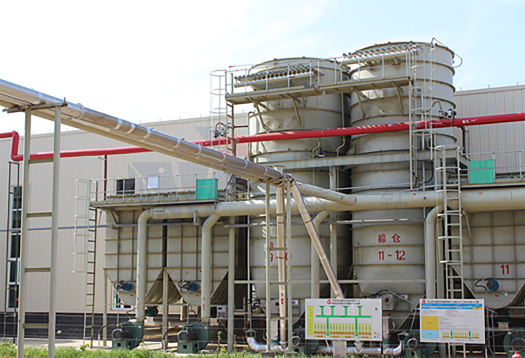
Nov . 29, 2024 20:57 Back to list
Hydroxyethyl Cellulose Available for Purchase in Diverse Quantities and Quality Options
Exploring Hydroxyethyl Cellulose A Versatile Polymer for Multiple Industries
Hydroxyethyl cellulose (HEC) is a non-ionic, water-soluble polymer derived from cellulose, the most abundant organic polymer on Earth. Its unique properties and versatility make HEC a popular choice across various industries, including pharmaceuticals, construction, personal care, and food processing. As demand for high-quality HEC continues to grow, many suppliers offer different grades of this polymer, catering to specific applications. This article explores the characteristics, applications, and benefits of hydroxyethyl cellulose, as well as where to find it for sale.
Properties of Hydroxyethyl Cellulose
HEC is characterized by its excellent thickening, gelling, and stabilizing properties. The polymer is synthesized by etherification, where ethylene oxide reacts with cellulose to produce hydroxyethyl groups. This modification enhances the solubility of cellulose in cold water and provides desirable rheological properties, making HEC an excellent thickening agent in various formulations.
One of the remarkable features of HEC is its ability to form clear, viscous solutions without altering the pH. It is also stable across a wide range of temperatures and can retain its performance in diverse ionic environments. Moreover, HEC is biodegradable and non-toxic, making it an environmentally friendly option for numerous applications.
Applications of Hydroxyethyl Cellulose
1. Pharmaceuticals In the pharmaceutical industry, HEC is widely used as a binder and thickening agent in oral tablets, granules, and slurries. Its ability to control the release of active ingredients makes it an ideal excipient in drug formulations. HEC is also utilized in topical applications such as creams, lotions, and gels due to its emulsifying and stabilizing properties.
2. Personal Care Products The cosmetics industry employs HEC in products such as shampoos, conditioners, and skin care formulations. HEC helps in improving texture, providing a luxurious feel, and enhancing the stability of emulsions. Its film-forming abilities also make it useful in hair styling products and sunscreens.
3. Construction HEC acts as a thickening agent in construction materials, including wall paints, adhesives, and cement formulations. It enhances workability, reduces water requirements, and improves the overall performance of these materials. HEC also helps control the drying time of cement-based products, ensuring higher durability and strength.
hydroxyethyl cellulose for sale

4. Food Industry In the food sector, HEC serves as a thickener and stabilizer in sauces, dressings, and dairy products. It helps maintain texture and prevents separation of ingredients, ensuring desirable consistency in food formulations. Moreover, HEC is often used in gluten-free products as a replacement for gluten, providing elasticity and structure.
Benefits of Using Hydroxyethyl Cellulose
The advantages of using HEC in various applications are notable. Its non-toxic and eco-friendly nature makes it a preferred choice for manufacturers aiming to create sustainable products. Additionally, the versatility of HEC allows for customization—different grades and viscosity levels can be tailored to meet specific formulation needs.
Moreover, utilizing HEC in formulations can enhance product performance, improve shelf life, and provide unique sensory characteristics. Its compatibility with a broad range of ingredients makes it an ideal candidate for formulators looking to develop innovative products.
Where to Find Hydroxyethyl Cellulose for Sale
With the expanding market for hydroxyethyl cellulose, suppliers and manufacturers are increasingly offering it for various applications. Companies specializing in specialty chemicals typically provide different grades of HEC, allowing customers to choose based on their specific requirements.
When sourcing HEC, it’s essential to evaluate the supplier's reputation, product quality, and customer service. Online marketplaces and industrial supply websites often feature a range of hydroxyethyl cellulose products, complete with specifications to help customers make informed choices.
In conclusion, hydroxyethyl cellulose is a versatile and valuable polymer that plays an essential role in numerous industries. Its unique properties and applications make it a go-to ingredient for formulators looking to improve their products. As demand increases, finding high-quality HEC for sale is easier than ever, opening up opportunities for innovation across various sectors.
-
Versatile Hpmc Uses in Different Industries
NewsJun.19,2025
-
Redispersible Powder's Role in Enhancing Durability of Construction Products
NewsJun.19,2025
-
Hydroxyethyl Cellulose Applications Driving Green Industrial Processes
NewsJun.19,2025
-
Exploring Different Redispersible Polymer Powder
NewsJun.19,2025
-
Choosing the Right Mortar Bonding Agent
NewsJun.19,2025
-
Applications and Significance of China Hpmc in Modern Industries
NewsJun.19,2025







